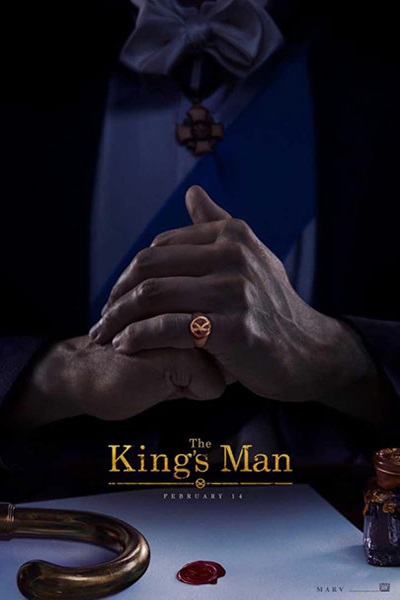
Tom Hollander
Biography
Life Story
Tom Hollander was born the second child of educated parents, both teachers. He grew up in Oxford, (UK).
Hollander credits the happy atmosphere of the Dragon School with his childhood introduction to acting. There, encouraged by an influential teacher named Andrew Roberts, he won the title role in "Oliver". His studies continued at Abingdon, as did his pursuit of acting. At about this point, he won a place in the National Youth Theatre, a UK organization for young people in the field of musical theatre, based in London, and later at the Children's Music Theatre. It was during CMT's "The Leaving of Liverpool" (1981) that he came to the attention of BBC television, and subsequently found himself front and center as the young protagonist in a well-regarded John Diamond (1981), based on the popular Leon Garfield adventure novel. He was just fourteen years old.
Other early projects included two roles in Bertholt Brecht's "The Caucasian Chalk Circle" (1985) for the National Youth Theatre, and "A Midsummer Night's Dream" for Oxford University Dramatic Society.
Hollander attended Cambridge University at about the same time as his childhood friend Sam Mendes in a visually bold (and well-remembered) staging of "Cyrano de Bergerac" (1988). Other collaborations with Mendes have followed, including work at the West End production of "The Cherry Orchard" (1989, with Judi Dench), and the Chichester Festival Theatre (1989) as well as a Toronto staging of "Kean" (1991) with Derek Jacobi. He also appeared in the Cambridge Footlights Revue (1988).
Upon graduation, Hollander hoped to gain entry to drama school, but found himself disappointed. The oversight did nothing to discourage a successful career already well under way: he garnered an Ian Charleson Award for his turn as Witwould in "The Way of the World" (1992), was nominated again for a "splendidly sinister, manic" performance as "Tartuffe" (1996), and yet again as a finalist for his Khlestakov ("a performance of ideal vigour and impudence"), in Gogol's "The Government Inspector" (1997). Inevitably, Hollander was urged to try films, and appeared in two films as early as 1996. True Blue (1996) (aka "Miracle at Oxford") found him in a small but memorable role as the cox for Oxford's noted 1987 "mutiny crew" that went on to win the that year's boat race against Cambridge, and in a thankless role in Some Mother's Son (1996), a sober drama about an IRA gunman, playing a Thatcher representative.
Family
No info available
Trivia
His performance in "Way of the World" at the Lyric, Hammersmith, earned him the Ian Charleson Award. [1992]
Can be heard on CD singing the role of Macheath in The Threepenny Opera, which he played at Sam Mendes' Donmar Theatre in a production by Phyllida Lloyd.
Elder sister, Julia, has directed operas.
Was a member of the National Youth Theatre.
Won a choral scholarship to Abingdon School
One of Tom's tutors at Cambridge was Steve Watts.
Went to Cambridge with his childhood friend Sam Mendes.
Tom went to Abingdon School with fellow actor, Toby Jones.
He has played two British kings: George V in The Lost Prince (2003) and George III in John Adams (2008).
He has played members of the infamous British spies known as the 'Cambridge Five'. He portrayed Guy Burgess in the 2003 UK miniseries 'Cambridge Spies' & Harold (Kim) Philby in the 2007 miniseries 'The Company'.
Appearing in "A Flea in Her Ear" at the Old Vic, London, as Victor Emmanuel Candebise. [December 2010]
Personal Quotes 
[on the purchase of his neighborhood cinema by a radical evangelical church planning 'to redeem the arts through Christian discipleship] It's offensive - the arts don't require redemption. The arts exist within a morally complicated zone, unlike an evangelical church which is morally infantile.
[on his role in The Darwin Awards (2006)] I play a silly drunk rich person who tries to have sex with his wife in his Winnebago and crashes. It's all based on a true story, except that in reality they weren't English. I have a theory that in the US if there's an arsehole in a film doing something stupid they say, 'Make them British, now it makes sense.' If they want a daft idiot nowadays, they just get a British actor in.
[on making Pride & Prejudice (2005)] Actresses are just professionally lovely, aren't they? Some of the crew are really good at their jobs and also incredibly attractive, which is *really* exciting! ...and that's been joyous... very difficult to focus sometimes. Not on the work, but just on which woman to focus on... So all the men have been blessed by the women on this, for which we are all eternally grateful, I'm sure. They're charming.
[his theory on why British actors get cast as villains in Hollywood] It's because we are seen in America as baddies as a nation. It's because we were their oppressors once, and they had to fight us off, so the sound of our voices brings all that back and they hear evil. It can't be pronunciation as though anything that sounds a bit different can be seen as negative, it would mean that we'd always have Americans as the villains in our drama, which just isn't the case.





















